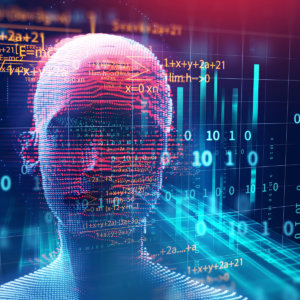Video: Preparing for the Changes AI Will Bring to Tomorrow’s Jobs
As technology fundamentally changes how companies operate, employees will need to hone new skills and build new relationships.
Topics
Artificial Intelligence and Business Strategy
In collaboration with
BCGOn May 23, 2017, the MIT Sloan School of Management hosted the 14th annual CIO Symposium: “The CIO Adventure: Now, Next and… Beyond.” The one-day event brought senior IT executives together to discuss key technologies, including IoT, AI, blockchain, Big Data, DevOps, cloud computing, and cybersecurity. The main idea was to help prepare these tech leaders for challenges they face, including shepherding ongoing digital transformations, building a digital organization, and managing IT talent.
This series highlights insightful sessions from the event.
Is artificial intelligence (AI) going to take over our jobs?
George Westerman, principal research scientist at MIT’s Initiative on the Digital Economy, moderated the aptly titled MIT CIO Symposium panel “Preparing for the Future of Work” to discuss this central question. Panelists including Mona Vernon, CTO of Thomson Reuters Labs; Cynthia Nustad, executive vice president and chief strategy officer, Health Management Systems Inc.; Ernest Ng, senior director of employee success strategy and people analytics at Salesforce.com Inc.; and David Neitz, CIO at CDM Smith, joined the conversation and shared their expertise in human resources as well as technology.
Westerman began the session suggesting that, while AI is certainly automating and augmenting how we work, there will still be opportunities for humans in tasks requiring supervision, working with equipment, and taking initiative. But for those not employed in positions requiring those skills today, change is imminent.
Get Updates on Innovative Strategy
The latest insights on strategy and execution in the workplace, delivered to your inbox once a month.
Please enter a valid email address
Thank you for signing up
When asked to predict what percentage of their workforces would need to change their jobs in the wake of disruptive digital technologies, the panelists anticipated a great deal of turnover. Health Management Systems’ Nustad, whose organization strives to increase the efficiency of health care logistics, billing, and coordination, suggested 80% of her workforce could be displaced by AI. Neitz, whose company is a leader in the construction industry, predicted 95% of his workforce risks losing their jobs to machines.
What can organizations, individual contributors, and educational institutions do to insure there will be space for people at the companies of the future? Each panelist pointed to creative ways to address the challenge. Salesforce, Ng explained, offers its customers all training materials for free in an effort to develop not only internal staff but also end users. At CDM Smith, Neitz encourages cross-functional collaboration on innovation projects to teach employees new skills.

